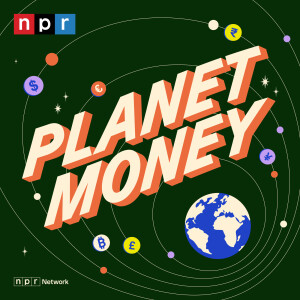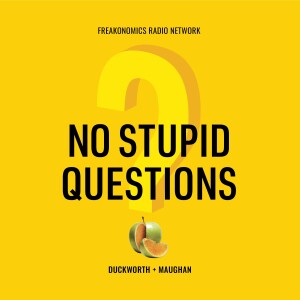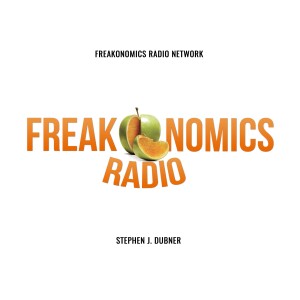It boosts economic opportunity and social mobility. It’s good for the environment. So why do we charge people to use it? The short answer: it’s complicated. Also: We talk to the man who gets half the nation’s mass-transit riders where they want to go (most of the time).
SOURCES:
- Marcus Finbom, traffic planner in Stockholm, Sweden.
- Robbie Makinen, former president and C.E.O. of the Kansas City Area Transportation Authority.
- Janno Lieber, chair and C.E.O. of the M.T.A. in New York City.
- Brian Taylor, professor of urban planning and public policy and director of the Institute of Transportation Studies at U.C.L.A.
- Shashi Verma, director of strategy and C.T.O. at Transport for London.
- Michelle Wu, mayor of Boston.
RESOURCES:
- "Free Bus Service Starts Sunday on 5 Routes in New York City," by Ana Ley (The New York Times, 2023).
- “Vehicle Access and Falling Transit Ridership: Evidence From Southern California,” by Michael Manville, Brian D. Taylor, Evelyn Blumenberg, and Andrew Schouten (Transportation, 2023).
- “Route-28 Fare-Free Pilot Evaluation: Summary Findings,” by the City of Boston Transportation (2022).
- “Forget Fare Hikes — Make the T Free,” by Michelle Wu (The Boston Globe, 2019).
- Traffic Power Structure, by Planka.nu (2016).
- "The Impacts of Neighborhoods on Intergenerational Mobility: Childhood Exposure Effects and County-Level Estimates," by Raj Chetty and Nathaniel Hendren (NBER Working Paper, 2015).
- "Fare, Free, or Something in Between?" by Jennifer S. Perone and Joel M. Volinski (World Transit Research, 2003).
- Planka.Nu.
EXTRAS:
- "Why Is the U.S. So Good at Killing Pedestrians?" by Freakonomics Radio (2023).
- "Should Public Transit Be Free?" by Freakonomics Radio (2022).
- “Should Traffic Lights Be Abolished?” by Freakonomics Radio (2021).
- “The Perfect Crime,” by Freakonomics Radio (2014).
- “Parking Is Hell,” by Freakonomics Radio (2013).
More Episodes
574. “A Low Moment in Higher Education”
 2024-01-25
2024-01-25
5 Psychology Terms You’re Probably Misusing (Replay)
 2024-01-22
2024-01-22
573. Can Academic Fraud Be Stopped?
 2024-01-18
2024-01-18
572. Why Is There So Much Fraud in Academia?
 2024-01-11
2024-01-11
571. Greeting Cards, Pizza Boxes, and Personal Injury Lawyers
 2024-01-04
2024-01-04
570. Is Gynecology the Best Innovation Ever?
 2023-12-28
2023-12-28
569. Do You Need Closure?
 2023-12-21
2023-12-21
568. Why Are People So Mad at Michael Lewis?
 2023-12-14
2023-12-14
567. Do the Police Have a Management Problem?
 2023-12-07
2023-12-07
566. Why Is It So Hard (and Expensive) to Build Anything in America?
 2023-11-23
2023-11-23
Extra: Jason Kelce Hates to Lose
 2023-11-19
2023-11-19
565. Are Private Equity Firms Plundering the U.S. Economy?
 2023-11-16
2023-11-16
480. How Much Does Discrimination Hurt the Economy? (Replay)
 2023-11-09
2023-11-09
564. How to Succeed at Failing, Part 4: Extreme Resiliency
 2023-11-02
2023-11-02
563. How to Succeed at Failing, Part 3: Grit vs. Quit
 2023-10-26
2023-10-26
562. How to Succeed at Failing, Part 2: Life and Death
 2023-10-19
2023-10-19
561. How to Succeed at Failing, Part 1: The Chain of Events
 2023-10-12
2023-10-12
232. A New Nobel Laureate Explains the Gender Pay Gap (Replay)
 2023-10-10
2023-10-10
560. Is This “the Worst Job in Corporate America” — or Maybe the Best?
 2023-10-05
2023-10-05
Create your
podcast in
minutes
- Full-featured podcast site
- Unlimited storage and bandwidth
- Comprehensive podcast stats
- Distribute to Apple Podcasts, Spotify, and more
- Make money with your podcast
It is Free
You may also like

The Economics of Everyday Things


Planet Money


People I (Mostly) Admire


Radiolab


No Stupid Questions

- Privacy Policy
- Cookie Policy
- Terms of Use
- Consent Preferences
- Copyright © 2015-2024 Podbean.com



 iOS
iOS Android
Android